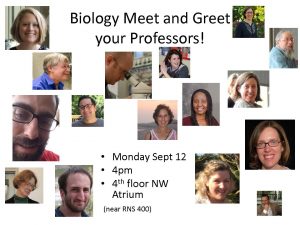Monday, Nov 7
Spatial Data. What is it and what can we do with it?
Lindsay Shand, University of Illinois at Urbana – Champaign.
3:30 pm in RNS 210 (Note: change in location)
In this talk, I will give an overview of spatial analysis and its application to environmental and disease data. I will introduce some common questions researchers want to address with such data and present some more complex spatial problems that I deal with in my research. Cookies and conversation.
Tuesday, Nov 8
No Seminar
Wednesday, Nov 9
St. Olaf & Carleton Joint Physics Poster Session
3:30 pm Fourth Floor Atrium at St. Olaf College
Thursday, Nov 10
Chemistry Seminar:“Proteomics: An approach to study complex Biological systems”
Pawel Ciborowski, Ph.D.,
3:15 pm, RNS 150
Math Club: 7:30 PM 6th floor lounge RMS
Math Club is showing the film The Man Who Knew Infinity on Thursday, November 10th at 7:30 pm in the 6th-floor lounge of RMS. The movie is a biographical drama about Srinivasa Ramanujan, a real-life mathematician who after growing up poor in Madras, India, gained admittance to Cambridge University during WWI and ultimately made major contributions to the mathematical field. One of the movie’s producers, Ken Ono, will be speaking at Math Across the Cannon this spring, so this is a great opportunity to see the movie before hearing Ken speak. There will also be popcorn and s’mores to roast, and assorted beverages!
Friday, Nov 11
RIVET: Software for Topological Data Analysis
Matthew Wright
3:40 pm in RNS 204
Persistent homology is a recently-developed tool for using topology to analyze the structure of complex data. At a basic level, persistent homology is sensitive to outliers in the data. However, a variant called multidimensional persistent homology is robust in the presence of outliers, but is much more difficult to compute and visualize. In this talk, I will describe current work with Michael Lesnick (Princeton University) to efficiently compute and visualize multidimensional persistent homology. This work has produced in the Rank Invariant Visualization and Exploration Tool (RIVET) and offers many directions for research projects. Cookies and Conversation
Biology Seminar : This week TBD – stay tuned to your email. We will update you when we can.

